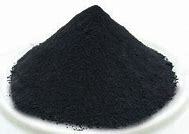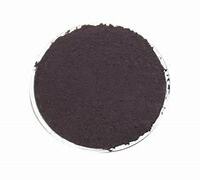Overview of Grinding Silicon Carbide Balls, High Temperature Resistance
Silicon Carbide (SiC) ceramic balls are spherical components made from high-purity silicon carbide, a synthetic ceramic material recognized for its exceptional hardness, wear resistance, and thermal stability. These balls are engineered to withstand demanding conditions, where conventional materials like steel or even standard ceramic balls may fail, making them invaluable in precision engineering and high-performance applications.
Features of Grinding Silicon Carbide Balls, High Temperature Resistance
-
Extreme Hardness: With a Mohs hardness rating close to diamond, SiC ceramic balls exhibit superior resistance to scratching and abrasion.
-
High Wear Resistance: Thanks to their hardness and low friction coefficient, they experience minimal wear, extending their lifespan in abrasive environments.
-
Superior Corrosion Resistance: Inert to most chemicals, they resist corrosion and degradation, even in acidic or alkaline conditions.
-
Thermal Stability: Retain their dimensions and mechanical properties over a wide temperature range, making them ideal for high-temperature operations.
-
Low Density: Being lighter than traditional metal balls, they reduce centrifugal forces and inertia in high-speed applications.
-
Electrically Insulating: Non-conductive nature allows their use in electrical and electronic applications requiring insulation properties.
-
Low Thermal Expansion: Minimal dimensional changes due to temperature fluctuations ensure consistent performance in precision applications.

(Grinding Silicon Carbide Balls, High Temperature Resistance)
Parameters of Grinding Silicon Carbide Balls, High Temperature Resistance
The grinding of silicon carbide balls can be conducted at high temperatures using various methods such as sanding, milling, and turning. The high temperature resistance parameter is the ability of the material to resist the heat generated during the grinding process.
For silicon carbide, the high temperature resistance parameter can be measured by exposing it to a range of temperatures, from room temperature to several hundred degrees Celsius. The material should withstand the increase in temperature without cracking or breaking.
There are several factors that contribute to the high temperature resistance parameter of silicon carbide, including its chemical composition, crystal structure, and grain size. For example, high-quality silicon carbide has a high melting point and low thermal expansion coefficient, making it more resistant to temperature changes.
Additionally, the way the grinding process is performed can also affect the high temperature resistance parameter of the material. For instance, sanding can reduce the surface roughness of the balls, which can improve their thermal conductivity. Similarly, milling and turning can shape the balls into desired profiles, which can further enhance their high temperature resistance parameter.
Overall, the high temperature resistance parameter of silicon carbide balls is influenced by many factors, and optimizing these parameters is essential for achieving optimal grinding results.

(Grinding Silicon Carbide Balls, High Temperature Resistance)
Company Profile
MyCarbides is a trusted global chemical material supplier & manufacturer with over 12-year-experience in providing super high-quality carbides and relative products.
The company has a professional technical department and Quality Supervision Department, a well-equipped laboratory, and equipped with advanced testing equipment and after-sales customer service center.
If you are looking for high-quality carbide materials and relative products, please feel free to contact us or click on the needed products to send an inquiry.
Payment Methods
L/C, T/T, Western Union, Paypal, Credit Card etc.
Shipment
It could be shipped by sea, by air, or by reveal ASAP as soon as repayment receipt.
Applications of Grinding Silicon Carbide Balls, High Temperature Resistance
-
Bearings: In high-speed, high-temperature, or corrosive environments where traditional metal bearings fail, SiC balls offer longer service life and reliability.
-
Valve Components: As check valve balls and seats in petrochemical processing, resisting corrosion and wear from aggressive media.
-
Pump Seals: Used in mechanical seals for pumps handling abrasive slurries or corrosive fluids, reducing maintenance and downtime.
-
Aerospace: In ball bearings and mechanisms requiring lightweight, high-strength components capable of withstanding extreme temperatures.
-
Semiconductor Manufacturing: As components in vacuum pumps and other equipment where particle contamination must be minimized.
-
Precision Instruments: In measurement and control devices where dimensional stability and longevity are critical.
FAQs of Grinding Silicon Carbide Balls, High Temperature Resistance
Q: Are Grinding Silicon Carbide Balls, High Temperature Resistance magnetic?
A: No, silicon carbide is a non-magnetic material, making these balls suitable for applications where magnetic interference must be avoided.
Q: How do Grinding Silicon Carbide Balls, High Temperature Resistance compare to steel balls in terms of durability?
A: SiC balls are significantly harder and more wear-resistant than steel, making them last longer in abrasive or high-stress applications, though they may be more brittle.
Q: Can Grinding Silicon Carbide Balls, High Temperature Resistance be used in food processing equipment?
A: Yes, due to their inertness and corrosion resistance, SiC balls are suitable for use in food-grade equipment, complying with hygiene standards.
Q: What is the typical size range for Grinding Silicon Carbide Balls, High Temperature Resistance?
A: Sizes can vary widely, from micrometers for precision applications to several centimeters for larger industrial uses, depending on the specific requirement.
Q: Are Grinding Silicon Carbide Balls, High Temperature Resistance costlier than metal balls?
A: Generally, yes, due to the advanced manufacturing processes involved and the material’s superior properties, SiC balls tend to have a higher upfront cost but offer long-term benefits in durability and reduced maintenance.

(Grinding Silicon Carbide Balls, High Temperature Resistance)





